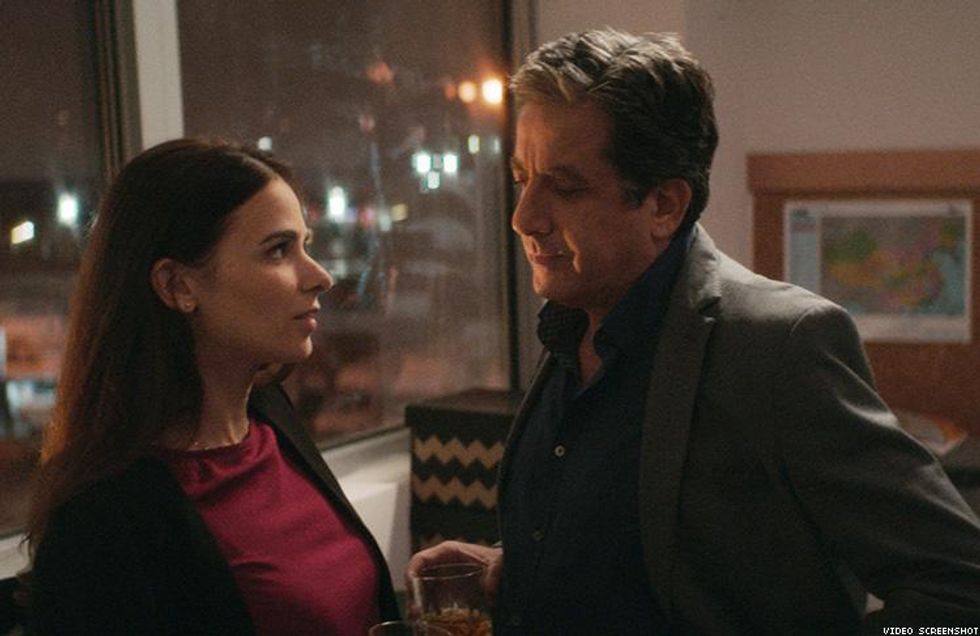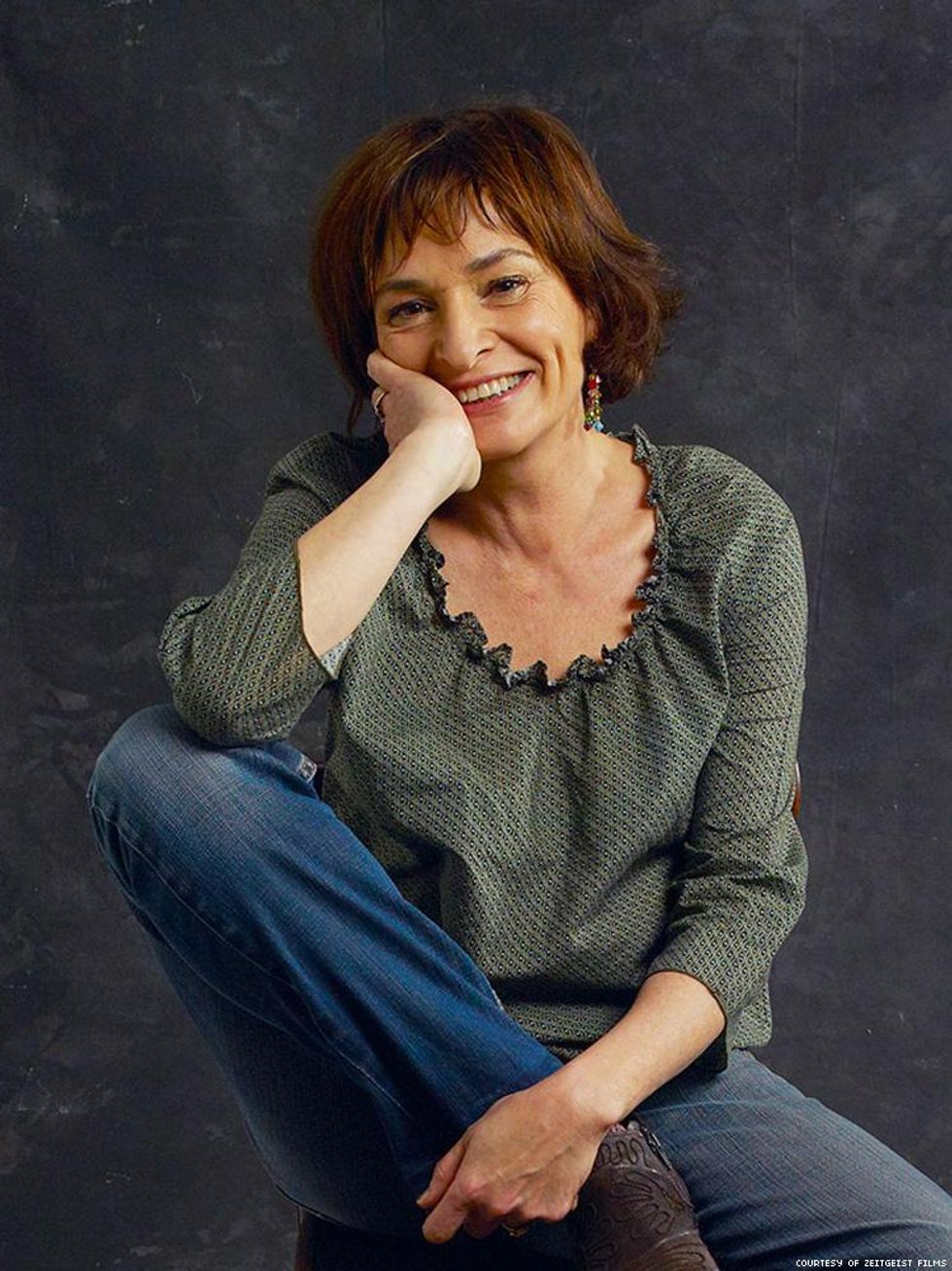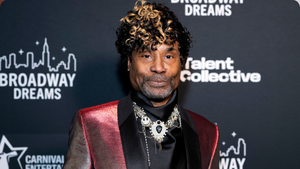The new film Working Woman centers Orna (Liron Ben-Shlush) a young mother struggling to support her family with her new real estate job amidst escalating sexual harassment from her boss, Benny (Menashe Noy).
The story is now new. Countless women (and men) have endured sexual harassment from employers and peers. But perhaps the story has never been told with such tenderness and subtly. The intimate Israel-set film holds close on Orna, and its long takes give us time to get aquainted with the vibrant, hard-working, innovative woman that she is. This makes it all the more heartwrenching to observe the cripping toll that the sexual assault takes on her mind, body, and spirit. It also enables us to feel her triumph as she cunningly fights for her freedom at the end.
Director Michal Aviad spoke with The Advocate about how she constructed such a painful, yet empowering film and how her feminism informs her filmmaking.
The Advocate: Watching Orna deteriorate after the sexual assault was heartbreaking. We could see the suffering in her eyes as she couldn't do simple daily tasks like packing her kids' lunches. Can you speak to the impact sexual assault has?
Michal Aviad: I think that the clash between the sexual assault she has experienced and society's norms she internalized over her 30 years of life as a woman is very confusing at first. Orna's first reaction is one of guilt, even if she cannot pinpoint what she did wrong. Was it wrong to go on a business trip with her boss? Was it wrong to dine with him? Was it wrong to help him open the door? I think it takes time for a victim of sexual assault to understand that she is not the guilty one.
What might you say to someone, like Orna's husband, who asks why she didn't punch or fight her boss off?
I think Orna's reaction is delayed. It does not come instinctively for her (or for me) to kick him in the balls or other "suggestions" we always receive. I think that women were raised not to react violently. She freezes or waits for it to be over while she's trying to figure out what is going on.
Why did she keep going back to work after his first inappropriate actions?
When he tried to kiss her she didn't let him and ran away. The next day she came to tell she is not interested in sexual relationships. She behaved "NO" and said "NO" and she expects that he respects that. She wants the job and needs it. She also knows that both her and her husband rely on the money she brings home. I think that she feels she is totally clear with Benny. She expects Benny to understand he disinterests her as a lover, as we the viewers understand.

Orna (Liron Ben-Shlush) and her boss Benny (Menashe Noy) in Working Woman
How did you discuss these character choices with Liron, who plays Orna?
We discussed Orna for months. Coming from documentaries, making realist films and being the person I am, for me working with actors is getting to know them and opening myself up to them. We read the script, discussed each scene and each beat, told each other our lives' stories and became very close with each other. I worked in the same way with the male actors and then we started meeting together -- Liron and Menashe (Benny) and Liron and Oshri (Ofer). We also conducted research together. Liron and I met agents who sell apartments, we learned from them and refined Orna.
How can this film help us uproot sexual assault from our culture?
In this film, I wanted to put a magnifying glass on the very complex issue of sexual harassment in the work place. I would like the audience -- women and men -- to come out of the film with an understanding how and why it happens and how "grey" it can be at times. I hope that viewers identify with Orna and what she is going through, and I hope they see the blind spots the protagonists and all of us have. By understanding how common and deeply ingrained sexual abuse is in our culture, we can fundamentally change women-men relationships and build a society in which not power, but treating the other as humans guide our lives together.
Why did you want to tell a story of a personal struggle and victory rather than a narrative where she goes to the press and "takes him down"?
Also, I don't think Orna could bring Benny to court under the Israeli or American law. Also, she does not have the resources or any witnesses who would go with her. The law is important but it cannot solve everything. What is needed on top of the law is that women and men change our values and the ways we were brought up. And on top of all this, my film is not a Hollywood film where one takes revenge; burning down the man's apartment, for example.
You had already started this film when the #MeToo movement broke open. How did that affect the filmmaking and has the #MeToo movement affected culture in Israel?
I have long thought that sexual abuse is a central arena of power between men and women, long before the #MeToo movement. I am familiar with countless stories of women and I have my own experience, but cinema usually portrays sexual abuse far from the ways it mostly happens. That is why I wanted to explore it in film. #MeToo erupted while we were filming, so it did not directly influence the film.

Working Woman director Michal Aviad
How does your identity as a feminist influence the stories you tell and the way you conduct your set as a director?
So far I made all my films from women's point of view.
When we came to the set, the actors and I were already very close to each other. I keep my sets calm and focused. I don't allow shouting and I strive to create a collaborative atmosphere, in which as the director, my job is to know what I'm looking for and to make the final decisions. We are all there to serve each other and allow each of us to be as creative and precise as possible. On the set, often the actors knew better than me how Orna or Benny or Ofer react and behave. They had intimately become their characters. I consulted with them. During shooting, maintaining flexibility on the set is a key for me. The actors, the cinematographer and myself would sometimes come up with different, better solutions while shooting. I wanted to obtain a rough realistic edge in the film, and that was a result of the freedom we often took while filming.
And agreed to allow improvisation during the shooting, except during the sexual scenes. In those ones, Menashe wanted to plan exactly what they do. Liron also felt that she wanted to know exactly what is going to happen so she can focus on her feelings and not on being manipulated. We felt that it is unethical to surprise the actors in these kind of scenes. We were aware of Maria Schneider's testimony about shooting the rape scene Last Tango In Paris, and many other allegations. We decided that the sexual and sexual abuse scenes would be rehearsed meticulously.
I know how to approach my work only through relationships of tenderness, shared passion, trust and appreciation. And maybe this is another feminist wisdom I use.
How is this an intersectional story and how do you hope it affects LGBTQ audiences?
I believe LGBTQ audiences understand the clashes of power and gender at least as well as heterosexuals, and often much better.
Working Woman is now playing in select theatres.






































































Charlie Kirk DID say stoning gay people was the 'perfect law' — and these other heinous quotes